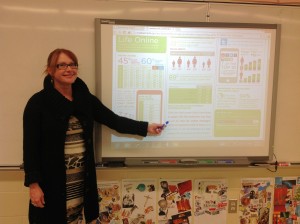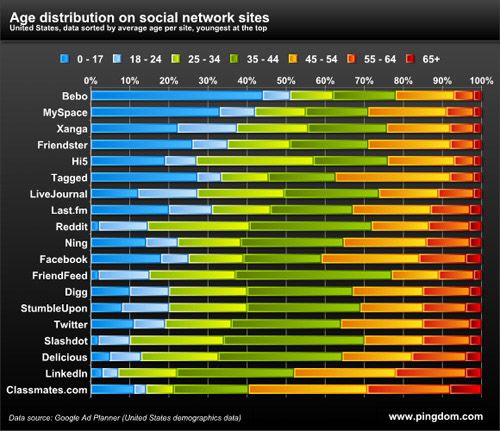 Three main themes emerged from Ramona Stillar’s presentation to parents who attended the first Growing Up Digital presentation at St. Peter’s School in Unity, Sask., Feb. 27 – we have to teach kids not to share too much, kids will make mistakes which need to be forgiven, and the opportunity the Internet gives kids to change the world.
Three main themes emerged from Ramona Stillar’s presentation to parents who attended the first Growing Up Digital presentation at St. Peter’s School in Unity, Sask., Feb. 27 – we have to teach kids not to share too much, kids will make mistakes which need to be forgiven, and the opportunity the Internet gives kids to change the world.
(If you missed this one, you can still come to the next session, Thursday, March 27, 7 pm, at St. Peter’s School where Stillar will walk parents through a variety of specific social networks. Bring your phone, tablet or laptop!)
Part of being safe online relates to life skills. Stillar spoke about the seven Cs – competence, confidence, connection, character, contribution, coping and control. For example, it takes confidence to not share too much online. Learning how to cope with stress, such as a fight with a friend, might include not posting derogatory things online about that friend.
Stillar pointed out sometimes children will forget about setting privacy settings. As a result, they may not be sharing information or photos with who they think they are.
Everyone needs to understand the online audience is real and includes many more people than actual friends.
Stillar asked how many parents knew someone who, when younger, had mooned people on the street from a car or school bus window. The only difference today is the size of the audience. Yesterday it was the people on the street at that point in time; today it can be thousands and even millions of people.
“Kids will make mistakes! And we have to forgive them … How would you deal with it if it wasn’t online?” The behaviours are the same; it is the bigger audience that is the difference.
Another example Stillar raised was drinking at university: “We all know kids have been doing that for decades.” She hopes adults, including university officials and future employers, understand “that is not what that kid is going to do forever…. A mistake online, even though the audience is larger, shouldn’t be game-changing for them.”
Part of growing up is making mistakes and learning from them. Parental forgiveness is important.
Young people are digitally fluent. They know their way around the Internet and how to find information, images and videos. The focus though tends to be looking at what others have created.
Stillar said, “Right now most of us are consumers of information on the Internet. The vast majority of us need to start thinking more in terms of producing … because that’s where the power is.”
She urged parents to help kids understand they can create and produce content for an audience we as parents never had the ability to reach. They can control what goes online and they can influence world-wide change. Marc and Craig Kielburger, We Day founders, are great examples.
 Asked about specific social media sites, Stillar said, “I can guarantee you that as soon as parents are on Snapchat, kids will be off it and on to the next thing. You do have to realize as parents that you can arm yourselves with all the information, you can get yourselves on all those social networks, you can start leveraging them and using them for your businesses and the work that you do but, at the end of the day you will never, ever be able to keep up with all the other apps that are going to come out.”
Asked about specific social media sites, Stillar said, “I can guarantee you that as soon as parents are on Snapchat, kids will be off it and on to the next thing. You do have to realize as parents that you can arm yourselves with all the information, you can get yourselves on all those social networks, you can start leveraging them and using them for your businesses and the work that you do but, at the end of the day you will never, ever be able to keep up with all the other apps that are going to come out.”
That’s why teaching children how to be safe online, and do well in life generally, is so important.
Stillar’s next presentation will be March 27, in workshop format as parents learn to use some of the most popular online social media sites. An April session will focus on cyberbullying.

















